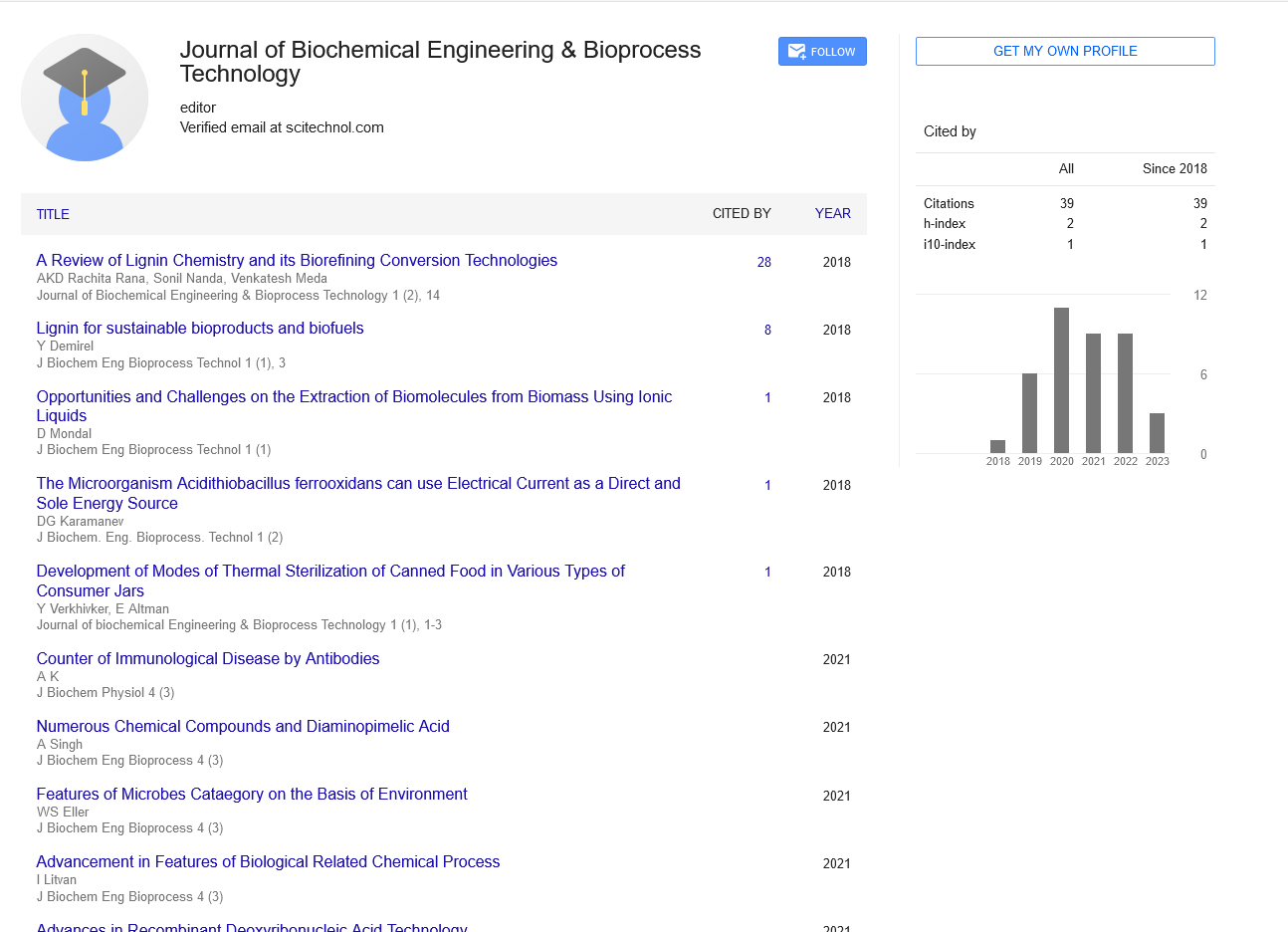Commentary, J Biochem Eng Bioprocess Vol: 6 Issue: 1
Revolutionary Impact of Genetic Manipulation on Medicine through Stem Cell Therapy
Joseph Chin*
1Department of Stem Cell and Regenerative Biology, Cambridge, MA, USA
*Corresponding Author: Joseph Chin
Department of Stem Cell and Regenerative Biology,
Cambridge, MA, USA
E-mail: josephchin@outlook.com
Received date: 15 February, 2023, Manuscript No. JBEBT-23-96116;
Editor assigned date: 17 February, 2023, Pre QC No. JBEBT-23-96116(PQ);
Reviewed date: 03 March, 2023, QC No. JBEBT-23-96116;
Revised date: 10 March, 2023, Manuscript No: JBEBT-23-96116(R);
Published date: 17 March, 2023, DOI: 10.35248/jbebt.1000056
Citation: Chin J (2023) Revolutionary Impact of Genetic Manipulation on Medicine through Stem Cell Therapy. J Biochem Eng Bioprocess 6:1.
Description
Stem cell therapy is a revolutionary field of medicine that has the potential to transform the way we treat a wide range of diseases and conditions. At its core, stem cell therapy involves the use of stem cells special cells that have the ability to differentiate into various types of cells to replace or repair damaged tissue in the body. Stem cells can be harvested from a variety of sources, including embryos, bone marrow, and adipose tissue, and can be manipulated through genetic engineering techniques to enhance their therapeutic potential. One of the most promising applications of stem cell therapy is in the treatment of degenerative diseases such as Alzheimer's, Parkinson's, and multiple sclerosis. These diseases are characterized by the gradual loss of function in specific parts of the body or brain, and there are currently no cures or effective treatments available. Stem cell therapy offers hope for these patients by providing a means to replace or repair damaged tissue and restore lost function
In addition to their potential in treating degenerative diseases, stem cells also hold promise for the treatment of a wide range of other conditions, including autoimmune diseases, genetic disorders, and even cancer. By using genetic engineering techniques to modify stem cells, researchers can create specialized cells that are better able to target and destroy cancer cells or promote the growth of healthy tissue. One of the most exciting areas of research in stem cell therapy is the use of Induced Pluripotent Stem Cells (iPSCs). These are adult cells that have been reprogrammed to behave like embryonic stem cells, meaning that they have the ability to differentiate into any type of cell in the body. This technology offers a way to generate patient-specific stem cells, which could be used to develop personalized treatments for a wide range of diseases.
Despite the many potential benefits of stem cell therapy, there are still significant challenges that must be overcome before this technology can become widely available. One of the biggest challenges is the risk of rejection–because stem cells are not derived from the patient's own body, there is a risk that the immune system will recognize them as foreign and attack them. Researchers are working on ways to overcome this challenge, such as by using immune-matching techniques to find compatible donors or by using genetic engineering to modify stem cells to make them less likely to be rejected.
Another challenge facing stem cell therapy is the risk of tumor formation. Because stem cells have the ability to divide and differentiate into various types of cells, there is a risk that they could form tumors if they are not carefully controlled. Researchers are working on ways to prevent this from happening, such as by using specific types of stem cells that have a lower risk of forming tumors or by carefully controlling the environment in which the cells are grown. Despite these challenges, the potential benefits of stem cell therapy are enormous. By using genetic manipulation techniques to enhance the therapeutic potential of stem cells, researchers are opening up new possibilities for treating a wide range of diseases and conditions. Stem cell therapy represents a true paradigm shift in medicine, one that has the potential to transform the way we think about and treat disease. With continued research and development, it is likely that we will see even more exciting advances in this field in the years to come.
 Spanish
Spanish  Chinese
Chinese  Russian
Russian  German
German  French
French  Japanese
Japanese  Portuguese
Portuguese  Hindi
Hindi 